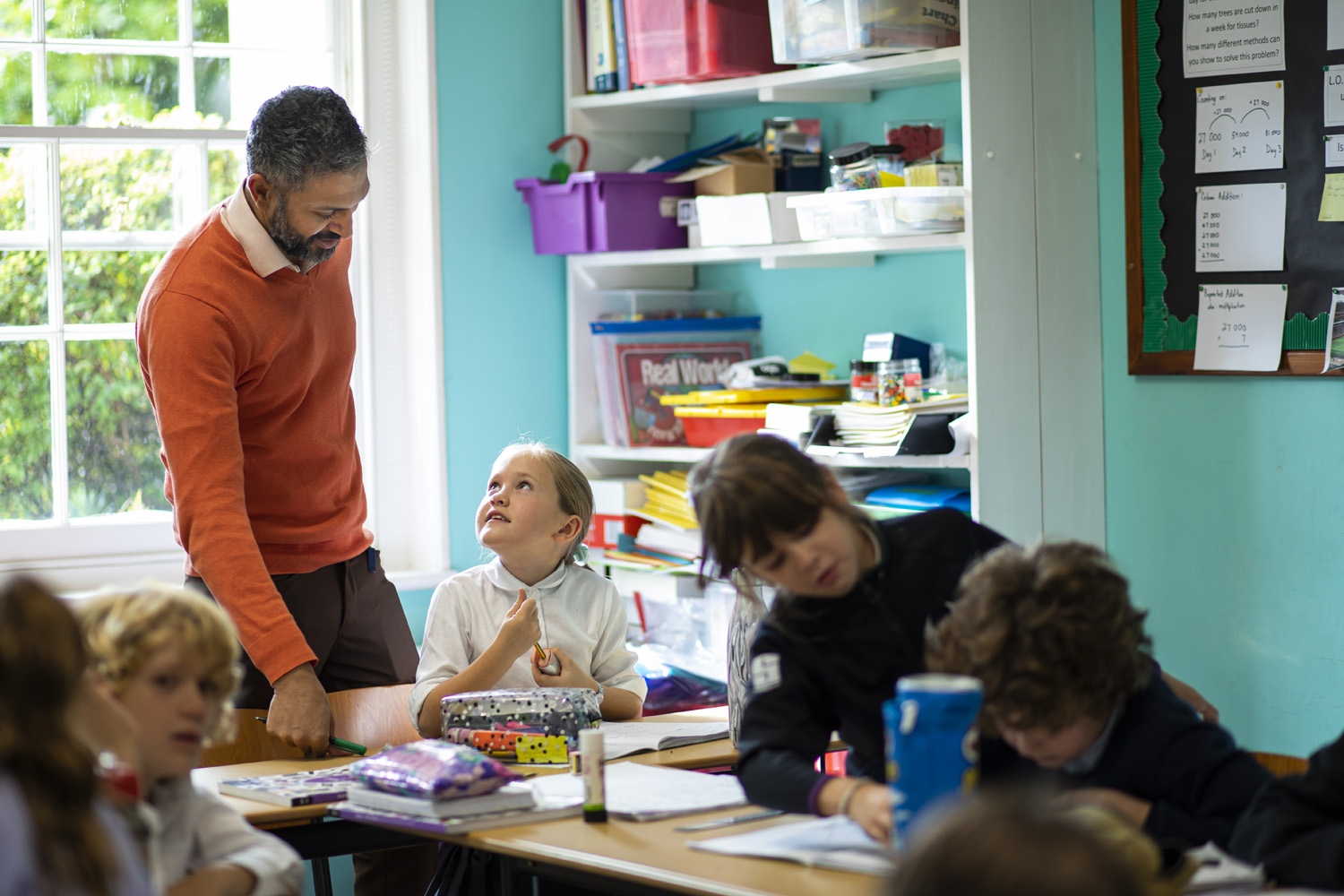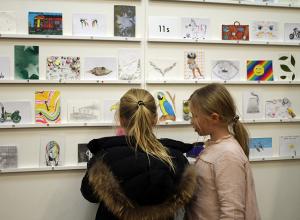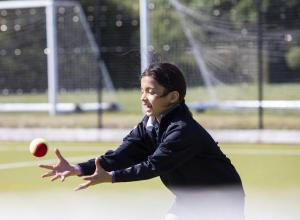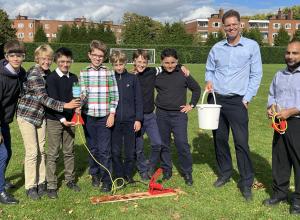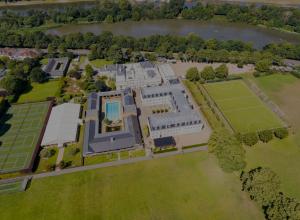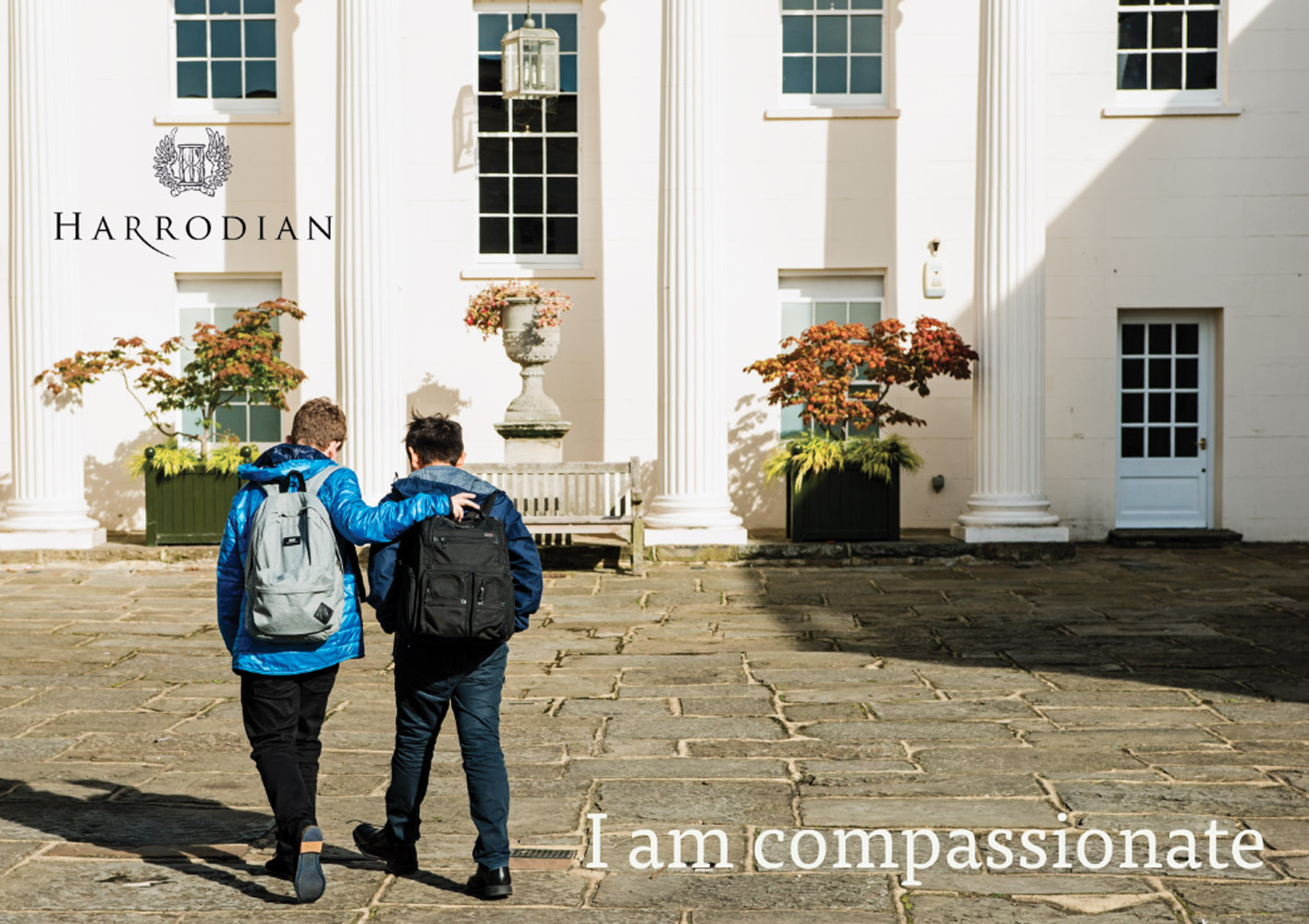
'We know the world is unjust, we know it to be tragic, we know there to be sadness. So let’s do something about it.' Warren Rodricks explains why Harrodian Prep has a mission to embed the transformative power of compassion in its pupils
On the 24th February 2022, Russia invaded Ukraine. Since then, tens of thousands have died; millions have been made refugees. Thanks to the wonders of 24 hour digital news gathering, tragic stories began to pour out of Kyiv and eastern Ukraine immediately. And since then the steady flow of sad images and video of a country under siege and in turmoil has scarcely abated in the 11 months since.
We felt it. Deeply. And then we acted. Compassionately.
They say that the single greatest irony of evil is the good it inspires. That good, I believe, is compassion.
Warren Rodricks
Since the war broke out, almost 100 000 refugees have been welcomed into British homes and the country has pledged over one billion pounds in aid and charity collections, including one at school, have been plentiful. They say that the single greatest irony of evil is the good it inspires. That good, I believe, is compassion. Which is the focus of this blog.
Discussing this pillar first doesn’t imply it is top of our list of values. Compassion shares equal weighting with all our pillars. And in truth, the reality is that the pillars are interconnected. They easily feed into one another and to develop one is to develop them all together, which in my view, is a truly wonderful thing.
When the Prep pastoral team was settling on our final choice of pillars we found the choice between empathy and compassion tricky to make. In the end we decided compassion was the better choice, because, well, because compassion IS a choice. We want our students to grasp that empathy is the basis for compassion – they must reach out and understand how others feel. But it is not enough just to understand. Empathy needs to prompt us into action. That is what compassion means. It is an action of the heart – action against injustice, against tragedy, against sadness. We know the world is unjust, we know it to be tragic, we know there to be sadness. So let’s do something about it.
It is not enough just to understand. Empathy needs to prompt us into action. That is what compassion means. It is an action of the heart – action against injustice, against tragedy, against sadness.
We, mostly, live privileged lives. I do not have to worry about staying warm in the winter, nor about having enough food to feed my family. You would hope that many if not all of us, would have this safety and comfort in common. But this is not the case for all. More than 45 million children across the world are malnourished and thanks to the continuing impact of Covid, this number is growing. The hard truth is that malnourishment, starvation even, cannot be put down to a lack of food. Based on the UN’s World Food Programme (WFP), a third of all food produced across the globe in a year is lost or wasted, food which otherwise could feed 2 billion people world-wide, – more than twice the number of malnourished people in the world. Meanwhile, in November 2022, Metro had reported that four million children were living in UK homes without proper access to food and one quarter of families were experiencing food insecurity, resulting in missed meals, eating less or not eating at all. Staggering statistics. But, how will this change? Through compassion, through our children growing up learning to take action when their hearts cry out for them to do so.
It's vital that our pupils learn about the power of compassion at an age when they need little encouragement to make choices driven by the best possible motives.
Learning about compassion doesn’t always mean starting with starvation or war stories, of course. For Harrodians, the process of discovering compassion’s importance, of accepting it as a key value and of integrating it into the decisions they make often begins with more every-day topics. It might start in a maths lesson where multiplication is learnt whilst studying the damaging, and sometimes deadly, impact of litter. Our students learn calculation while simultaneously learning about the impact – often damaging – humankind has on the life we find around us. They see and they hear about wildlife suffering because of human selfishness, carelessness or neglect. They witness great suffering in animal populations that are easy to care about and sympathise with. Then, being the type of children they are, they take action. They convince their parents that they, though small and young, can do something about litter and they head outside to make a difference.
Discovering compassion's importance might start in a maths lesson where multiplication is learnt whilst studying the damaging, and sometimes deadly, impact of litter.
By taking action, they have made a choice to make the world a better place based on the suffering they have witnessed. And it is a choice that often becomes addictive because they understand that they can impact their surroundings just as much as they are influenced by them. They come to see that action driven by compassion – their compassion – can make a crucial difference.
We hope to embed compassion firmly as a value in Harrodians’ hearts and minds and to reveal its power to change lives and the world we live in for the better.
It's vital that our pupils learn about the power of compassion at an age when they need little encouragement to make choices driven by the best possible motives. Can you visualise a world where all our important decisions were based on the simple and pure notion of compassion found within a child? For me it conjures up a world much better than the one we inhabit today. To realise this dream, the choices our children make as adults will need to be better – and braver – than those that we and past generations have managed. By establishing compassion as a Prep pillar we hope to embed it firmly as a value in Harrodians’ hearts and minds and to reveal its power to change lives and the world we live in for the better.
Warren Rodricks welcomes feedback to this blog at website@harrodian.com
